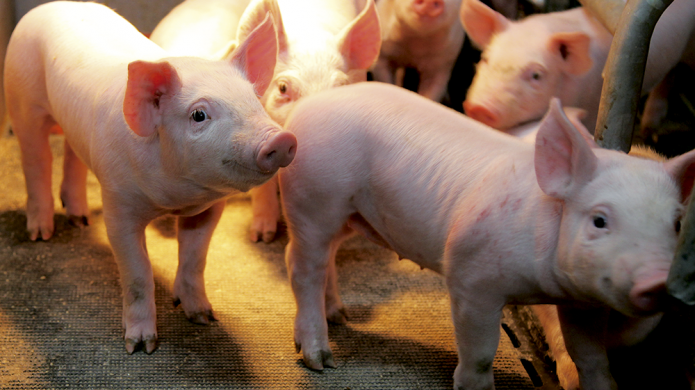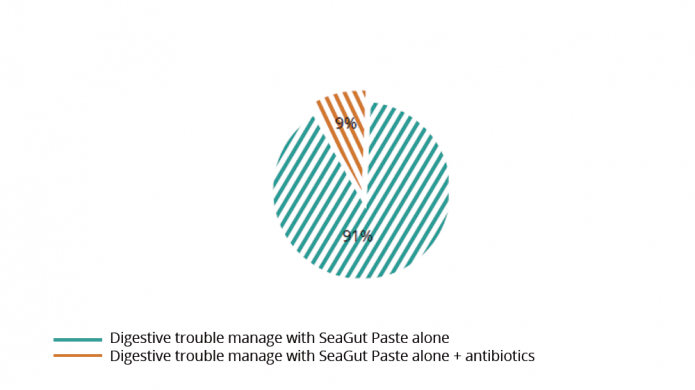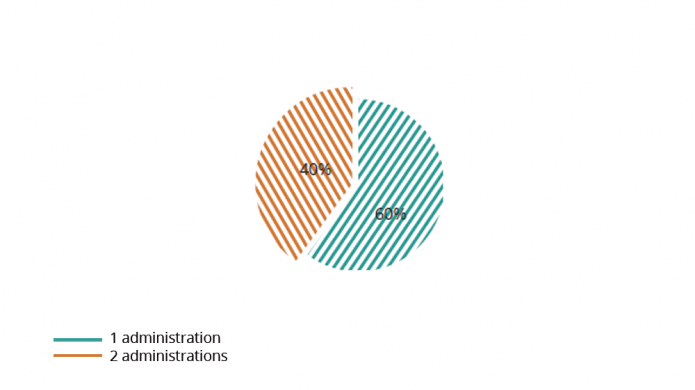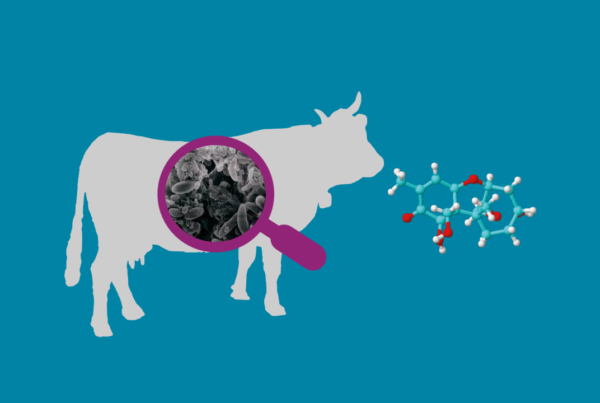Neonatal digestive troubles represent the main cause of young piglet’s mortality and trigger severe economic losses along with an almost systematic use of antibiotics.
Neonatal digestive troubles represent the main cause of young piglet’s mortality and trigger severe economic losses along with an almost systematic use of antibiotics. Considering a global demand to reduce antimicrobial use and increase welfare in livestock production, alternatives must be found. In this context, Olmix developed an algae and clay based product to answer one of the most important issue for young piglets.
Neonatal digestive troubles
Digestive disorders in young piglets are often triggered by the development of pathogens in the intestine, which is favored by the immaturity of piglet’s immune system and gut microflora. The involved pathogens can be bacteria, viruses or parasites, the most common infectious agents are Escherichia Coli, Clostridium perfringens type A&C and Clostridium difficile, Enterococcus, Rotavirus and Coronavirus, depending on area. Independently of the involved causative agent, digestive troubles lead to dehydration, followed by a loss of electrolytes and minerals, and poor absorption of nutrients leading to energy deficiency. Litter homogeneity is affected and late growth at weaning is observed. In worst cases, high mortality rates before weaning occur. Thus, prevention, early identification and immediate initiation of supportive care and treatment for neonatal diarrhea cases are essential. Once appropriate steps have been implemented in management to limit the risk factors for the occurrence of neonatal digestive troubles, SeaGut Paste, a newly launched complementary feed destined to young piglets, can be used.

Piglet.
“3 in 1” strategy
SeaGut Paste has been developed to optimize intestinal welfare and limit the negative effects of neonatal digestive troubles. Its innovation stands in the unique association of natural active substances in a single and complete easy-to-use product (Figure 1). This “3 in 1” product allows to protect the digestive tract, to promote equilibrated intestinal microbiota, and to support young piglet physiological balance.
The protection of the intestinal mucosa is a key point for piglet’s digestive welfare. The presence of MSP®MUCIN (from specific macroalgae) and micronized montmorillonite clay (bentonite) in SeaGut Paste reinforce in a synergetic way to mucosa barrier effect. Indeed, the MSP®MUCIN compound has the capacity to increase mucin secretion by goblet cells (Barcelo et al., 2000), mucins constituting the mucus layer which is the first line of defense against enteric infections (Abranches et al., 2013). Moreover, montmorillonite clay can adhere to the intestinal epithelium, physically strengthening the barrier effect provided by the mucus layer (Song et al., 2012). Montmorillonite also increases water holding capacity which reduces dehydration of the piglets and help them to recover. Micronized montmorillonite increases the contact surface and coating capacity. Moreover, supporting young piglet’s digestive welfare can be done by favoring a balanced intestinal flora. This is achieved in SeaGut Paste thanks to the use of selected essential oils (clove and oregano) and yeast extracts which joint action supports the development of the commensal microflora (Rhayou et al.,2014; Devi et al.,2010; Oyedemi et al.,2009, Sharon et al., 1993).


Last but not least, piglets being weakened when they are affected by intestinal disorders, it is important to provide them, necessary elements for a good energetic and physiological balance. In this respect, SeaGut Paste contains dextrose, wheat starch and spirulina, which are highly available sources of energy and proteins. Furthermore, the blend of electrolytes contained in the product (chloride, sodium and potassium) rapidly rehydrate the affected piglets.
Field efficacy
Trial was conducted at 400 GP sows farm in Vietnam with different genetics during April and May 2017. All litters presenting digestive troubles (at least 1 piglet per litter) were included in the trial and received 1 dose of 2ml of SeaGut Paste for 1 to 2 days. After 2 days, if the digestive troubles persist, the farmers were allowed to use antibiotic treatment. In total, 22 litters (average parity = 3.45) were included in the study. Results showed that the use of SeaGut Paste alone was able to handle digestive troubles in 91% of cases and only 9% litters received antibiotics. When SeaGut Paste was able to stop the digestive troubles, only one application of the product was necessary in 60% of cases. In 40% of cases the digestive trouble were stopped with 2 days of treatment. The results were further validated by the successful use of product in other countries, including France,Ireland, Italy, Cambodia, where SeaGut Paste was successful in managing neonatal digestive troubles in 65 to 90% of the cases depending on the context.



